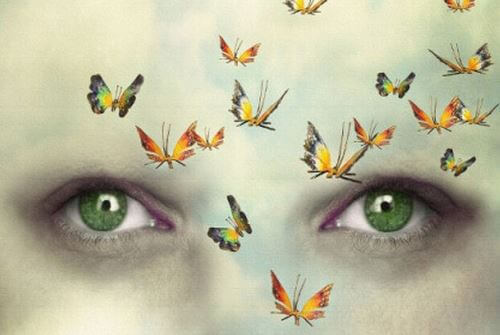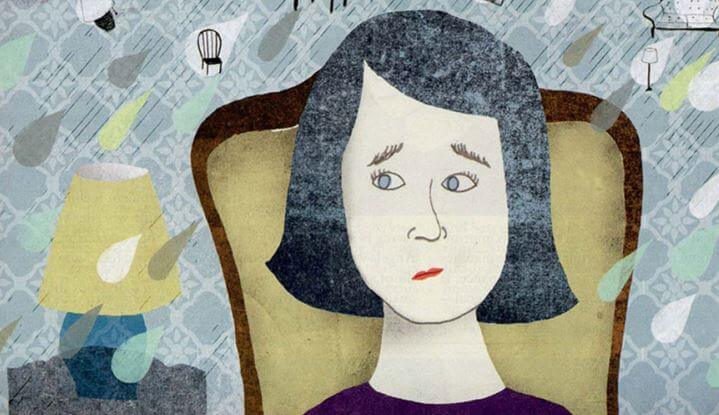Anxiety and Its Questions

Anxiety is a state that emerges from the belief that there is a threat or danger in our surroundings. Furthermore, that we should run away from it or confront it, if we are to survive.
Currently, it has been described as a negative state that we shouldn’t feel due to the unpleasant physiological symptoms it causes and how much it hinders our freedom. But, the truth about anxiety is that, if it is well-managed, it is a healthy and adaptive emotion without which we wouldn’t have survived.
Nowadays, many people around the world suffer from anxiety, and it manifests itself many different ways. But all of them have in common one fact. The individual who experiences it interprets reality as if something terrible, threatening or catastrophic is about to arrive.
Someone with anxiety believes without a doubt that something very bad is coming. They have to prepare for it, be it by running away and keeping themselves safe or by fighting and defending themselves.
The key to avoiding this resides in changing our interpretations while we modify our way of behaving. To do this we need to be able to detect our own beliefs. We need to question them, debate them and replace them with ones more based on the truth and reality.
The questions of anxiety
We mentioned above that many times anxiety communicates with us by asking questions which alert us and activate us on a physiological level. They tend to be negative questions, aimed at filtering reality. So that we may only contemplate the small possibility of danger, seen as a very likely possibility, of course.

Generalized anxiety: what if…?
Anxiety always tends to ask about that slight possibility. But in the case of generalized anxiety, the possibility of danger extends to a multitude of situations in your daily life. This hinders the person’s day-to-day life in great measure.
The “what if?” appears everywhere (in regards to children, your romantic partner, environmental circumstances, work…). This forces you to stay alert too long and during too many circumstances, without any rest, neither physical or mental.
They feel like they need to worry so that those possible catastrophes, although improbable, won’t occur. And in the end, they find that the worrying which invades them is what they should really be worried about.
Panic disorder: What if I have a heart attack? What if I go crazy? What if I make a fool out of myself?
Here the individuals feel anxiety due to the symptoms of their own anxiety. It’s like the child who is afraid of his own shadow. The more he runs, the more it chases him.
The questions revolve around the catastrophic consequences of the physiological manifestations of anxiety. These might seem similar to certain illnesses and can even make them think that they’re going to go crazy or die. There are people who are also afraid of fainting or making a fool out of themselves or “making a scene” in public. This makes them avoid going out more and more, thus consolidating their agoraphobia.
Hypochondria: What if I am diagnosed with a terminal illness?
As you would expect, in the case of hypochondria, anxiety scares us by asking us about the possibility that we might fall ill. It even adds the idea of death. In order to try to palliate this fear, we get checked out over and over again or avoid going to the doctor all together. This way, even if we are actually ill, we won’t find out about it and won’t have to endure that displeasure.
Social anxiety: What if I make a fool of myself? What if they notice I’m shy?
In social anxiety, our little inner devil is constantly asking us what would happen if we make a fool of ourselves, if we have nothing to say, if we screw up or what others could be thinking about us.

This bombardment of questions makes us react with fear. We blush from the shame, sweat, stutter and also fear that these symptoms will be noticeable to other people. Because this makes us feel even more “weak”. In the end we end up running away from “dangerous situations”, confirming that this is our only choice.
Anxiety is a little inner devil
As we have just read, anxiety is a little inner devil that loves to keep us alert, see us sweat, tremble, get flushed or hyperventilate. This devil enjoys asking us negative questions or telling us that everything is dangerous and that we should simply run away.
The less attention we give it, the more it will grow tired. Slowly, it will start to leave us alone. The key is to look it straight in the eye, accept it and tell it that we already know all of its tricks. But, this time, we have the upper hand. We’re not going to let ourselves be frightened that easily.
Anxiety is a state that emerges from the belief that there is a threat or danger in our surroundings. Furthermore, that we should run away from it or confront it, if we are to survive.
Currently, it has been described as a negative state that we shouldn’t feel due to the unpleasant physiological symptoms it causes and how much it hinders our freedom. But, the truth about anxiety is that, if it is well-managed, it is a healthy and adaptive emotion without which we wouldn’t have survived.
Nowadays, many people around the world suffer from anxiety, and it manifests itself many different ways. But all of them have in common one fact. The individual who experiences it interprets reality as if something terrible, threatening or catastrophic is about to arrive.
Someone with anxiety believes without a doubt that something very bad is coming. They have to prepare for it, be it by running away and keeping themselves safe or by fighting and defending themselves.
The key to avoiding this resides in changing our interpretations while we modify our way of behaving. To do this we need to be able to detect our own beliefs. We need to question them, debate them and replace them with ones more based on the truth and reality.
The questions of anxiety
We mentioned above that many times anxiety communicates with us by asking questions which alert us and activate us on a physiological level. They tend to be negative questions, aimed at filtering reality. So that we may only contemplate the small possibility of danger, seen as a very likely possibility, of course.

Generalized anxiety: what if…?
Anxiety always tends to ask about that slight possibility. But in the case of generalized anxiety, the possibility of danger extends to a multitude of situations in your daily life. This hinders the person’s day-to-day life in great measure.
The “what if?” appears everywhere (in regards to children, your romantic partner, environmental circumstances, work…). This forces you to stay alert too long and during too many circumstances, without any rest, neither physical or mental.
They feel like they need to worry so that those possible catastrophes, although improbable, won’t occur. And in the end, they find that the worrying which invades them is what they should really be worried about.
Panic disorder: What if I have a heart attack? What if I go crazy? What if I make a fool out of myself?
Here the individuals feel anxiety due to the symptoms of their own anxiety. It’s like the child who is afraid of his own shadow. The more he runs, the more it chases him.
The questions revolve around the catastrophic consequences of the physiological manifestations of anxiety. These might seem similar to certain illnesses and can even make them think that they’re going to go crazy or die. There are people who are also afraid of fainting or making a fool out of themselves or “making a scene” in public. This makes them avoid going out more and more, thus consolidating their agoraphobia.
Hypochondria: What if I am diagnosed with a terminal illness?
As you would expect, in the case of hypochondria, anxiety scares us by asking us about the possibility that we might fall ill. It even adds the idea of death. In order to try to palliate this fear, we get checked out over and over again or avoid going to the doctor all together. This way, even if we are actually ill, we won’t find out about it and won’t have to endure that displeasure.
Social anxiety: What if I make a fool of myself? What if they notice I’m shy?
In social anxiety, our little inner devil is constantly asking us what would happen if we make a fool of ourselves, if we have nothing to say, if we screw up or what others could be thinking about us.

This bombardment of questions makes us react with fear. We blush from the shame, sweat, stutter and also fear that these symptoms will be noticeable to other people. Because this makes us feel even more “weak”. In the end we end up running away from “dangerous situations”, confirming that this is our only choice.
Anxiety is a little inner devil
As we have just read, anxiety is a little inner devil that loves to keep us alert, see us sweat, tremble, get flushed or hyperventilate. This devil enjoys asking us negative questions or telling us that everything is dangerous and that we should simply run away.
The less attention we give it, the more it will grow tired. Slowly, it will start to leave us alone. The key is to look it straight in the eye, accept it and tell it that we already know all of its tricks. But, this time, we have the upper hand. We’re not going to let ourselves be frightened that easily.
This text is provided for informational purposes only and does not replace consultation with a professional. If in doubt, consult your specialist.







